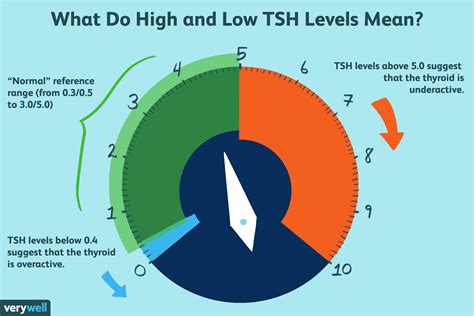lv lower Left ventricular hypertrophy changes the structure of the heart and how the heart works. The thickened left ventricle becomes weak and stiff. This prevents the lower left heart chamber from filling properly with blood. Dr. Stuart S. Kaplan is a Neurosurgeon in Las Vegas, NV. Find Dr. Kaplan's phone number, address, insurance information, hospital affiliations and more.
0 · what is lower level management
1 · what does lower level mean
2 · lower level synonym
3 · lower level meaning
4 · lower level language
5 · low sodium levels symptoms
6 · low levels meaning
7 · low level thesaurus
We assisted Benita Danilenko, the owner of Domenikss, which is the representative of Mercedes-Benz in Latvia, in the sale of the company to Veho. About the deal. The transaction covers the import, retail and maintenance of Mercedes-Benz passenger and commercial vehicles.
The left ventricle is the thickest of the heart’s chambers and is responsible for pumping oxygenated blood to tissues all over the body. By . Left ventricular hypertrophy, or LVH, is a term for a heart’s left pumping chamber that has thickened and may not be pumping efficiently. Sometimes problems such as aortic .
Left ventricular hypertrophy changes the structure of the heart and how the heart works. The thickened left ventricle becomes weak and stiff. This prevents the lower left heart chamber from filling properly with blood. The left ventricle is the thickest of the heart’s chambers and is responsible for pumping oxygenated blood to tissues all over the body. By contrast, the right ventricle solely pumps blood to.
Left ventricular hypertrophy, or LVH, is a term for a heart’s left pumping chamber that has thickened and may not be pumping efficiently. Sometimes problems such as aortic stenosis or high blood pressure overwork the heart muscle. Left ventricular hypertrophy, or LVH, is a term for a heart’s left pumping chamber that has thickened and may not be pumping efficiently. Sometimes problems such as aortic stenosis or high blood pressure overwork the heart muscle. An enlarged or thickened heart — a condition doctors call left-ventricular (LV) hypertrophy — can lead to heart failure. It also may double the risk of dementia and cognitive impairment . To diagnose left ventricular hypertrophy, a healthcare professional does a physical exam and asks questions about your symptoms and family's health history. The care professional checks your blood pressure and listens to your heart with a device called a stethoscope.
Living a heart-healthy lifestyle can lower your risk of left-sided heart failure. If you’ve already experienced this condition, healthy habits can help you avoid future issues. Steps you can take to prevent left-sided heart failure include: Manage your blood pressure or coronary artery disease.
Ejection fraction (EF) is a measurement that represents the percentage of blood the left ventricle pumps out with every contraction. It’s a sign of how well your heart is pumping blood. The normal, healthy range for EF measurement is 55% to 70%. An EF .
Left ventricular hypertrophy (LVH) makes it harder for the heart to pump blood efficiently. It can result in a lack of oxygen to the heart muscle. It can also cause changes to the heart’s conduction system that make it beat irregularly (arrhythmia).Left ventricular hypertrophy (LVH) means that the muscle of the heart's main pump (left ventricle) has become thick and enlarged. This can happen over time if the left ventricle has to work too hard. This part of the heart needs to be strong to pump oxygen-rich blood to your entire body. Left ventricular hypertrophy changes the structure of the heart and how the heart works. The thickened left ventricle becomes weak and stiff. This prevents the lower left heart chamber from filling properly with blood. The left ventricle is the thickest of the heart’s chambers and is responsible for pumping oxygenated blood to tissues all over the body. By contrast, the right ventricle solely pumps blood to.
Left ventricular hypertrophy, or LVH, is a term for a heart’s left pumping chamber that has thickened and may not be pumping efficiently. Sometimes problems such as aortic stenosis or high blood pressure overwork the heart muscle. Left ventricular hypertrophy, or LVH, is a term for a heart’s left pumping chamber that has thickened and may not be pumping efficiently. Sometimes problems such as aortic stenosis or high blood pressure overwork the heart muscle. An enlarged or thickened heart — a condition doctors call left-ventricular (LV) hypertrophy — can lead to heart failure. It also may double the risk of dementia and cognitive impairment . To diagnose left ventricular hypertrophy, a healthcare professional does a physical exam and asks questions about your symptoms and family's health history. The care professional checks your blood pressure and listens to your heart with a device called a stethoscope.
Living a heart-healthy lifestyle can lower your risk of left-sided heart failure. If you’ve already experienced this condition, healthy habits can help you avoid future issues. Steps you can take to prevent left-sided heart failure include: Manage your blood pressure or coronary artery disease.Ejection fraction (EF) is a measurement that represents the percentage of blood the left ventricle pumps out with every contraction. It’s a sign of how well your heart is pumping blood. The normal, healthy range for EF measurement is 55% to 70%. An EF .Left ventricular hypertrophy (LVH) makes it harder for the heart to pump blood efficiently. It can result in a lack of oxygen to the heart muscle. It can also cause changes to the heart’s conduction system that make it beat irregularly (arrhythmia).

what is lower level management
what does lower level mean

lower level synonym
lower level meaning
lower level language

Find information about and book an appointment with Dr. Dan L Curtis, MD in Las Vegas, NV. Specialties: Radiation Oncology.
lv lower|lower level meaning



























